
If you have read our blogs or visited an acupuncturist, you may have heard the term “dampness.” But what is dampness in Chinese Medicine, and what does it mean for your health?
Dampness may sound like a strange concept, but it’s pretty simple. Read on to learn what dampness really is and how you can rid your body of dampness with Chinese medicine!
What is Dampness?
You may know what dampness is when it comes to basements or damp weather. But what does it mean in the body?
To understand how dampness affects the body, consider how dampness affects our natural world. Water is necessary for life on Earth. But too much rain can lead to flooding and stagnant water that rots the life beneath it.
The same thing can happen in the body. When excess fluids (dampness) stagnate in an area, it negatively affects the organs, tissues, and energy of that area.
What Does Dampness Mean in Chinese Medicine?
Dampness in Chinese medicine is a concept that illustrates the disharmony that occurs when our normal fluids build up and become harmful.
In Chinese medicine, the term “dampness” can refer to any excess fluids, fat, or mucus that clog up the system and prevent our bodies from functioning optimally.
Dampness can come from eating certain foods (like dairy products and fried foods), a lack of physical activity, the environment you live in, or even the constitution you were born with.
Chinese medicine practitioners have a saying:
“The earth element creates dampness and the metal element stores it.”
The earth element organs are the Spleen and Stomach. If they are overburdened by a dampness-promoting diet, stress, or weakened energy, they will create more dampness.
The metal element organs are the Lungs and Large Intestines. They “store” the damp that the Spleen and Stomach produce. This is why dampness signs mostly commonly show up as nasal congestion, mucus, wet coughs, allergies, bloating, diarrhea, and loose stools.
Potential Signs of Dampness
- Bloating
- Stubborn weight gain
- Diarrhea and loose stools
- Nasal congestion and mucus
- Allergies
- PCOS
- Excess vaginal discharge
- Yeast infections
- Dizziness and brain fog
- Chronic fatigue syndrome
- Sluggish energy
- Feel heavy
- Joint pain
- Water retention and swelling
- Puffy skin
- Eczema
- Acne
- Greasy skin
- Oozing lesions or pus
How to Get Rid of Dampness in the Body with Chinese Medicine
Dampness can be a tricky problem to solve, but Chinese medicine offers a few different solutions:
Acupuncture for Dampness
Acupuncture helps to rid the body of dampness by improving the function of the Spleen and Stomach. A weak Spleen and Stomach system will produce more and more dampness. When we strengthen these symptoms through powerful acupuncture points, we can reduce the dampness the body produces and start to make progress.
Acupuncture also helps to move qi, blood, and fluids to reduce the stagnation caused by dampness – and relieve those annoying symptoms like bloating, brain fog, fatigue, and swelling.
Diet Therapy for Dampness
Diet therapy, or Chinese Medicine Nutrition, uses food as medicine. To help reduce your symptoms (like weight gain or allergies), diet therapy for dampness uses certain foods to strengthen the Spleen and Stomach systems and others to drain excess fluids.
Exercise for Dampness
Exercise is essential if you want to clear away dampness and revive your body. Dampness causes stagnation, but regular exercise keeps qi, blood, and body fluids moving. Walking, jogging, qigong, tai chi, stretching, yoga, and other activities that get your heart pumping are great ways to combat dampness.
Chinese Herbs for Dampness
Chinese herbal medicine is the most effective way to reduce dampness because herbs communicate most directly with the digestive system and internal organs. But not all dampness is the same; it affects different areas of the body and organ systems based on your unique situation. Below are our best Chinese herbs for dampness based on typical symptoms.
Chinese Herbs for Dampness
Best Chinese Herbs for Preventing Dampness
If you have mild signs of dampness or simply want to support your Spleen and Stomach system, try a general formula like Four Gentlemen Teapills. This classic formula tonifies the Spleen to prevent overwhelm and dampness build-up. It can be used for weak digestion, chronic gastritis, bloating, loose stools, fatigue, lethargy, and low vitality.
To address more severe general dampness, use Wu Ling Wan as an herbal diuretic.
Best Chinese Herbs for Dampness and Weight Loss or Digestive Disorders
If you’re struggling to lose weight, dampness might be sabotaging your efforts. Chinese herbs for weight loss can help.
If along with weight gain, you also experience loose stools, bloating, fatigue after eating, low appetite, lethargy, dizziness, coldness, or weakness, try Gui Pi Wan or Bu Zhong Yi Qi Wan. These formulas help strengthen your Spleen so you can revive your energy and improve your metabolism.
If instead, you experience abdominal pain, stomach distention, constipation, foul diarrhea, red face, sweating, or irritability, Bao He Wan is a better choice. It clears dampness and heat so you can find balance and lose weight more quickly.
-
Sale!
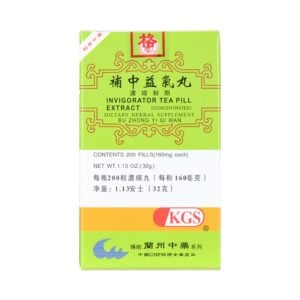 Bu Zhong Yi Qi Wan – Invigorator Teapill Extract – Lanzhou Traditional Herbs (KGS)
Starting at $7.89
Add to CartSelect options
This product has multiple variants. The options may be chosen on the product page
Bu Zhong Yi Qi Wan – Invigorator Teapill Extract – Lanzhou Traditional Herbs (KGS)
Starting at $7.89
Add to CartSelect options
This product has multiple variants. The options may be chosen on the product page
-
Sale!
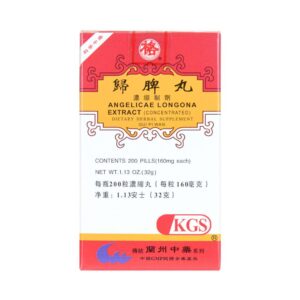 Gui Pi Wan – Angelicae Longona Extract – Lanzhou Traditional Herbs (KGS)
Starting at $7.89
Add to CartSelect options
This product has multiple variants. The options may be chosen on the product page
Gui Pi Wan – Angelicae Longona Extract – Lanzhou Traditional Herbs (KGS)
Starting at $7.89
Add to CartSelect options
This product has multiple variants. The options may be chosen on the product page
Best Chinese herbs for dampness and reproductive issues
Dampness easily seeps into the lower abdomen to affect the reproductive system. In women, it can lead to excessive vaginal discharge, yeast infections, UTIs, PCOS, infertility, and pelvic inflammatory conditions.
Formulas like Ba Zhen Wan help address damp-heat that causes inflammation, burning, and pain. Formulas like Gui Zhi Fu Ling Wan help address both dampness and blood stagnation that causes irregular menstruation, PMS, cysts, and abdominal bloating.
In men, it can lead to prostate enlargement, painful urination, and poor sperm quality. Consider a formula like Kai Kit Wan to reduce the dampness and restore your Kidney health.
-
Sale!
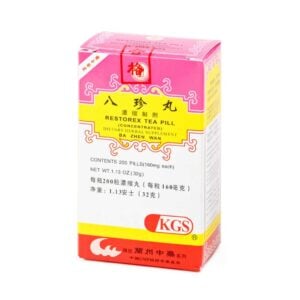 Ba Zhen Wan – Restorex Teapill – Lanzhou Traditional Herbs (KGS)
Starting at $7.89
Add to CartSelect options
This product has multiple variants. The options may be chosen on the product page
Ba Zhen Wan – Restorex Teapill – Lanzhou Traditional Herbs (KGS)
Starting at $7.89
Add to CartSelect options
This product has multiple variants. The options may be chosen on the product page
Best Chinese herbs for dampness and skin issues
When dampness affects the skin, it’s common to experience skin inflammation with redness, itching, and greasiness. It can present as hives, slow-healing wounds, eczema, or acne.
The best formula, in this case, is Subdue the Dampness Teapills, or Bi Xie Sheng Shi Wan. This formula uses five potent dampness-draining herbs to release excess water, clear inflammation, and heal the skin.
Dampness, Be Gone!
Drop the heaviness of dampness through healthy lifestyle habits and Chinese herbs! Shop these and other Chinese herbs for dampness to achieve your health goals faster.
Still curious about dampness? Ask us your questions in the comments!


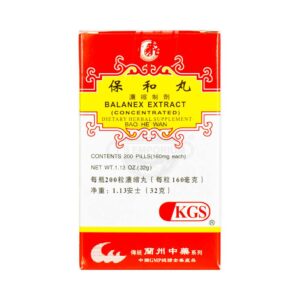 Bao He Wan – Balanex Extract – Lanzhou Traditional Herbs (KGS)
Bao He Wan – Balanex Extract – Lanzhou Traditional Herbs (KGS)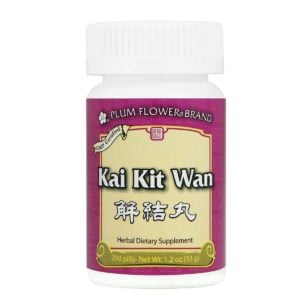 Plum Flower – Kai Kit Wan
Plum Flower – Kai Kit Wan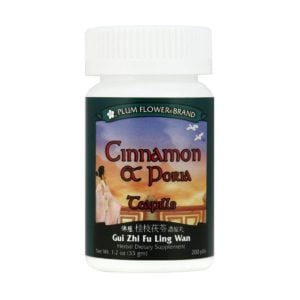 Plum Flower – Cinnamon and Poria (Gui Zhi Fu Ling Wan)
Plum Flower – Cinnamon and Poria (Gui Zhi Fu Ling Wan)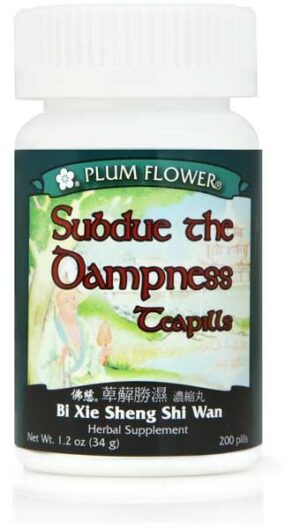 Plum Flower – Subdue the Dampness Teapills (Bi Xie Sheng Shi Wan)
Plum Flower – Subdue the Dampness Teapills (Bi Xie Sheng Shi Wan)